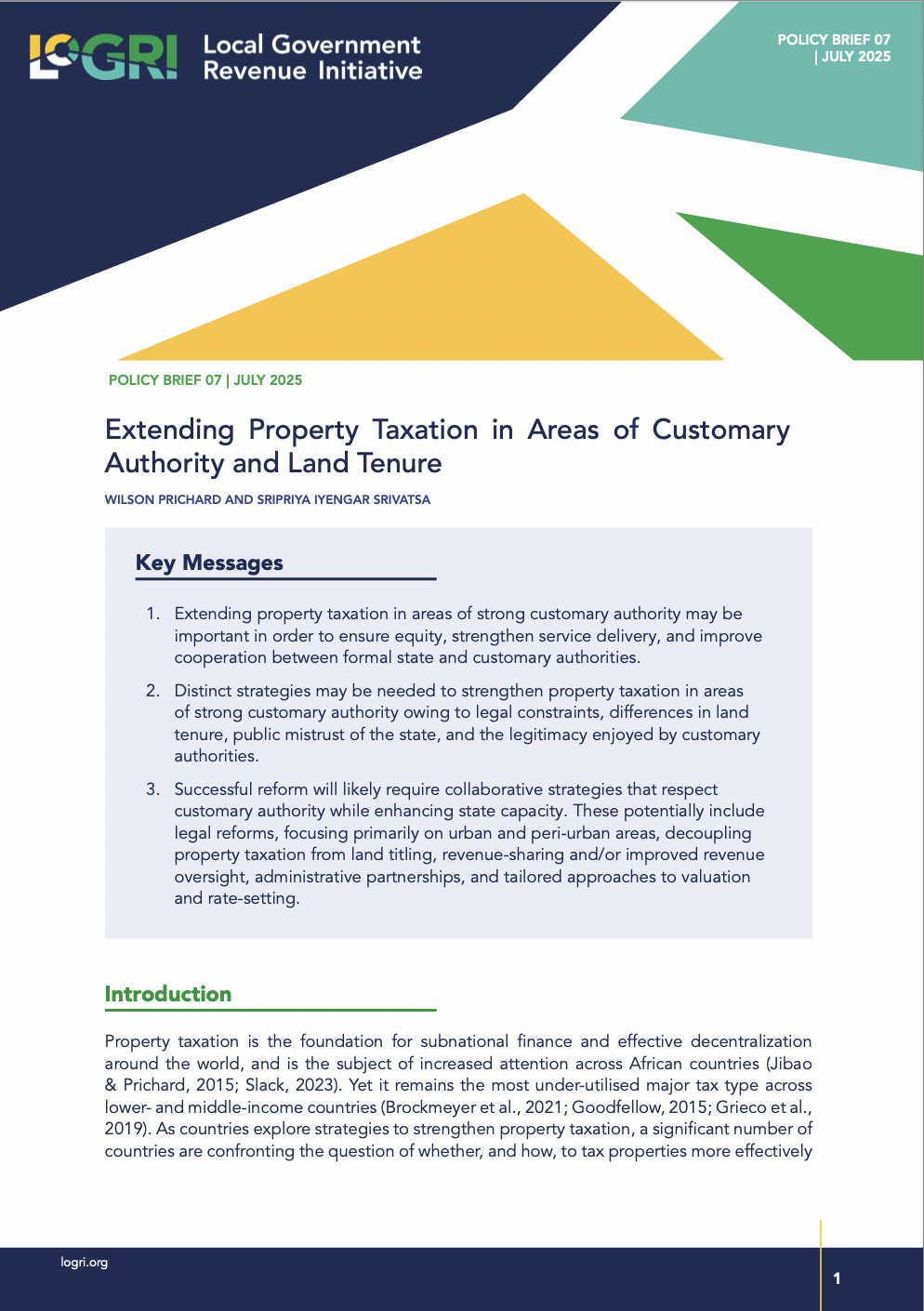Property taxation is the foundation for sub-national finance and effective decentralization around the world, and has been the subject of expanded attention across African countries. Yet, it remains the most under-utilized major tax type across lower and middle income countries. As countries explore strategies to strengthen property taxation, a significant number of countries confront the question of whether, and how, to tax properties more effectively in areas of customary authority and tenure. This is particularly true of properties located in peri-urban spaces, where they may be significant revenue potential. Collecting property taxes in areas of strong customary authority can improve service delivery, ensure equitable taxation across state and customary areas, and build strong links between citizens and the formal state, but also presents distinct challenges and complexities.
This policy brief reviews the following issues, particularly relevant to the context of many African countries:
- The importance of the issue and potential motivations for expanding taxation in territories governed by customary authorities,
- The key barriers and challenges to doing so in a way that not only raises revenue but also strengthens development efforts more broadly, and
- Potential strategies for inter-institutional coordination that may contribute to overcoming key barriers.



